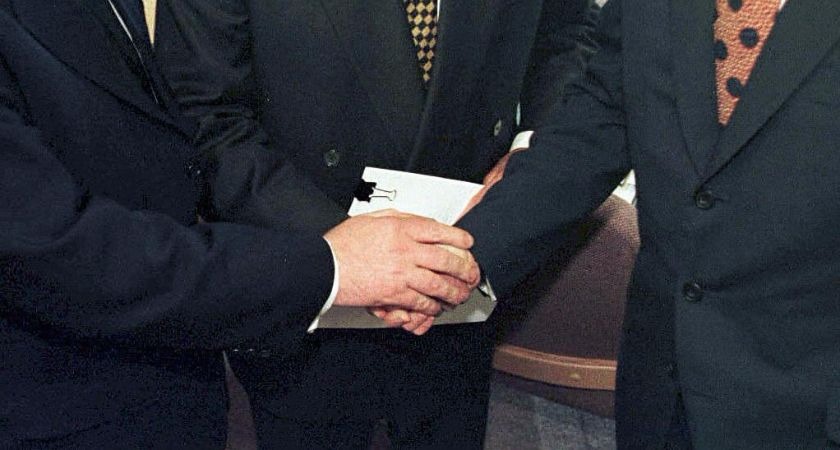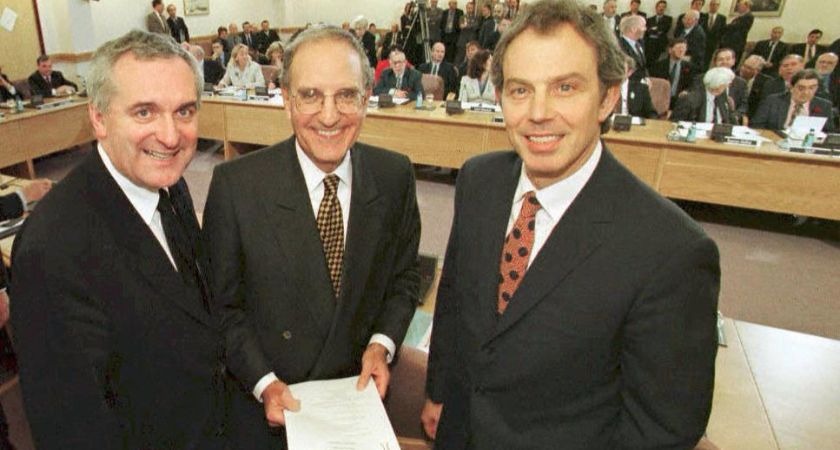ON April 10, 1998, an agreement between the British and Irish Governments and the majority of political parties in Northern Ireland changed the Irish political landscape forever.
The Good Friday Agreement ended 30 years of violent sectarian conflict and provided the first significant step towards peace in the region.
It brought about lasting change for many. Here are just a few of the ways in which the Good Friday Agreement changed Northern Ireland forever.
9. Nearly 1,500 people died during the 20-year-period prior to the signing of the agreement. There have been fewer than 150 victims of conflict-related violence in the two decades since.
8. According to the Northern Ireland Mixed Marriage Association (NIMMA) before the Troubles, one in 10 marriages were mixed. These figures dropped during the Troubles but have since risen to around the pre-Troubles level and are projected to rise higher.

7. The number of tourists visiting Belfast moved from 400,000 in 1999 to 1.7m in 2011, while venue has gone from £100m to £451m over the same period, with both figures likely to have increased in the years since.
6. There were more than two and half times as many pupils in integrated schools in 2014 as there were in 1998…even though the overall school-age population fell during this period.
5. The agreement gave prominence to the "principle of consent" which affirmed the legitimacy of a United Ireland while also recognising the wish of the majority to remain part of the UK.
 Taoiseach and Fianna Fail leader Bertie Ahern with Senator George Mitchell and British Prime Minister Tony Blair at Castle Buildings Belfast, after they signed the Good Friday Agreement (Picture: RollingNews.ie/Pool)
Taoiseach and Fianna Fail leader Bertie Ahern with Senator George Mitchell and British Prime Minister Tony Blair at Castle Buildings Belfast, after they signed the Good Friday Agreement (Picture: RollingNews.ie/Pool)
